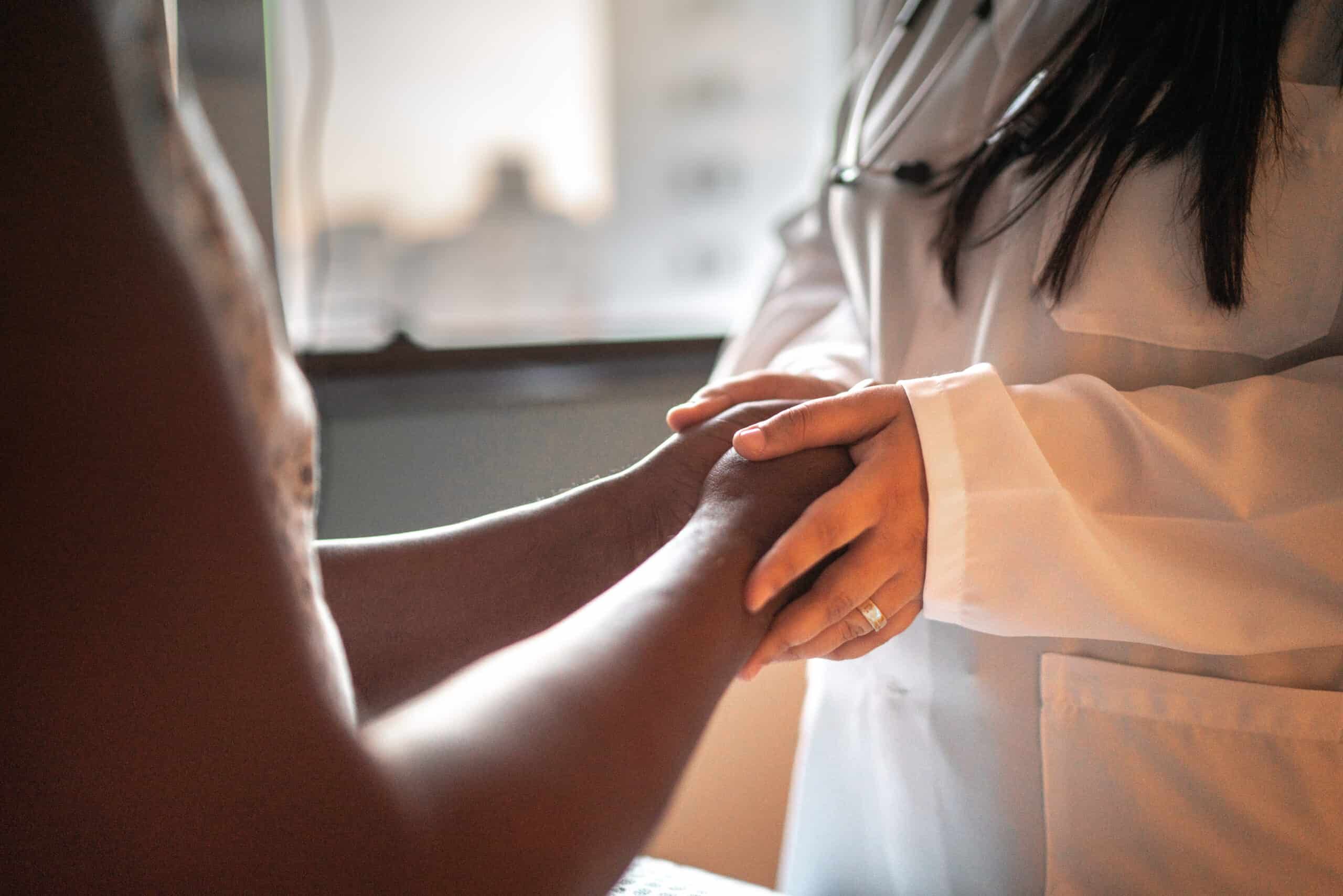Cancer Care
Want to learn more about this at Kettering Health?
At a Glance
Q: What happens after a cancer diagnosis?
A: After diagnosis, your oncologist creates a tailored treatment plan and connects you with a support team.
- Nurse navigators guide you through every step.
- Dieticians help maintain nutrition during treatment.
- Integrative medicine offers stress-relief therapies.
How will my cancer diagnosis affect my family? What are my treatment options? Am I going to be okay?
A cancer diagnosis can send your mind racing through countless worst-case scenarios—not to mention the unknowns of what comes next.
But you’re not alone.
Mary Alliston, an oncology-certified registered nurse, shares what to expect after a diagnosis and who you can count on.
After your cancer diagnosis
A cancer diagnosis doesn’t usually happen like the movies. The somber doctor walking in the room with your chart, or even the intense phone call saying the words, “You have cancer.” Oftentimes, you see the test results in MyChart first due to legislation requiring medical records to be made available to patients as soon as they’re available.
Seeing the test results can be distressing. That’s why you’ll hear from a care provider as soon as possible. Try to avoid going down the spiral of social media or Google. Your physician will also see your results and make sure you understand them before referring you to an oncologist.
Once the oncologist has processed the referral, a member of the oncology team will reach out to schedule a consultation. You may also receive a call from a nurse navigator during this time, offering support and answers to any questions.
When you come in for your first appointment with your oncologist, you may have additional testing ordered to better understand your situation.
“We’re putting the pieces of the puzzle together to make sure that we know exactly what’s going on and can optimize your treatment,” Alliston says.
Your oncologist will create a treatment plan specifically tailored to you. Depending on your diagnosis, your treatment plan may include a combination of medical, surgical, or radiation oncology.
You’ll also get connected with your care team, a group of professionals committed to you and your family.
“What patients desperately want at the time that they’re diagnosed,” she says, “is somebody to come alongside them, help make sense of it, and help give them a plan.”
Your care team
Along with doctors and nurses, your care team is full of compassionate professionals devoted to you and your family in ways you may never have considered.
Your care team will fill in the gaps while you go through treatment. They can help you with concerns like
- Child care
- Financial assistance
- Support for your spouse
As Alliston says, “There’s more going on with each individual person than just their disease.”
Social Workers
Social workers can connect you with financial assistance, support for your loved ones, transportation, and so much more. They ensure you go through treatment with as few worries as possible.
“Every patient who comes in [to the oncologist] is screened to determine what areas, what vulnerabilities, are there that we can help support,” says Alliston. “This will help the patient successfully attend all their treatments and complete all their treatments.”
Although not every patient may need a social worker, they are invaluable in helping patients overcome worries outside of their disease.
Nurse Navigators
A nurse navigator guides you throughout treatment. As you transition through treatment, your nurse navigator stays with you. They make sure that you get what you need every step of the way.
“They help coordinate care, remove barriers,” says Alliston. “The primary nurse may be different for each oncologist, but the nurse navigator stays the same throughout.”
Dieticians
“A lot of times, treatment takes a lot out of patients,” Alliston says, “and they’re not able to keep up their nutrition.”
Dieticians help make your treatment as effective as possible. Keeping up with your nutrition is crucial to managing treatment side effects and increasing your energy despite a fluctuating appetite.
Integrative Medicine
Integrative medicine professionals understand this is a difficult time. They offer holistic therapies, such as aromatherapy, massage therapy, mental health counseling, and more, to help you cope with the stress of a cancer diagnosis and treatment.
These skilled professionals will work alongside your oncologist to make sure you get the most out of these supplemental therapies.
“They’re a great resource,” says Alliston. “They provide a lot of support for our patients just in helping them cope with treatment.”
Pharmacists
Not only do pharmacists provide you with medications and make sure you understand them, they can connect you to financial assistance if you need it.
“We have a fabulous pharmacy team that helps connect patients to their medications,” says Alliston.
More positive outcomes
While the journey may still be full of anxiety, it won’t be filled with so many unknowns.
“Reactions are often fear and anxiety—fear of the unknown—from the stories they’ve heard from others or seen online,” she says. “But those of us who work in oncology will tell you we see so many more positive stories—so many more positive outcomes than people would expect.”









